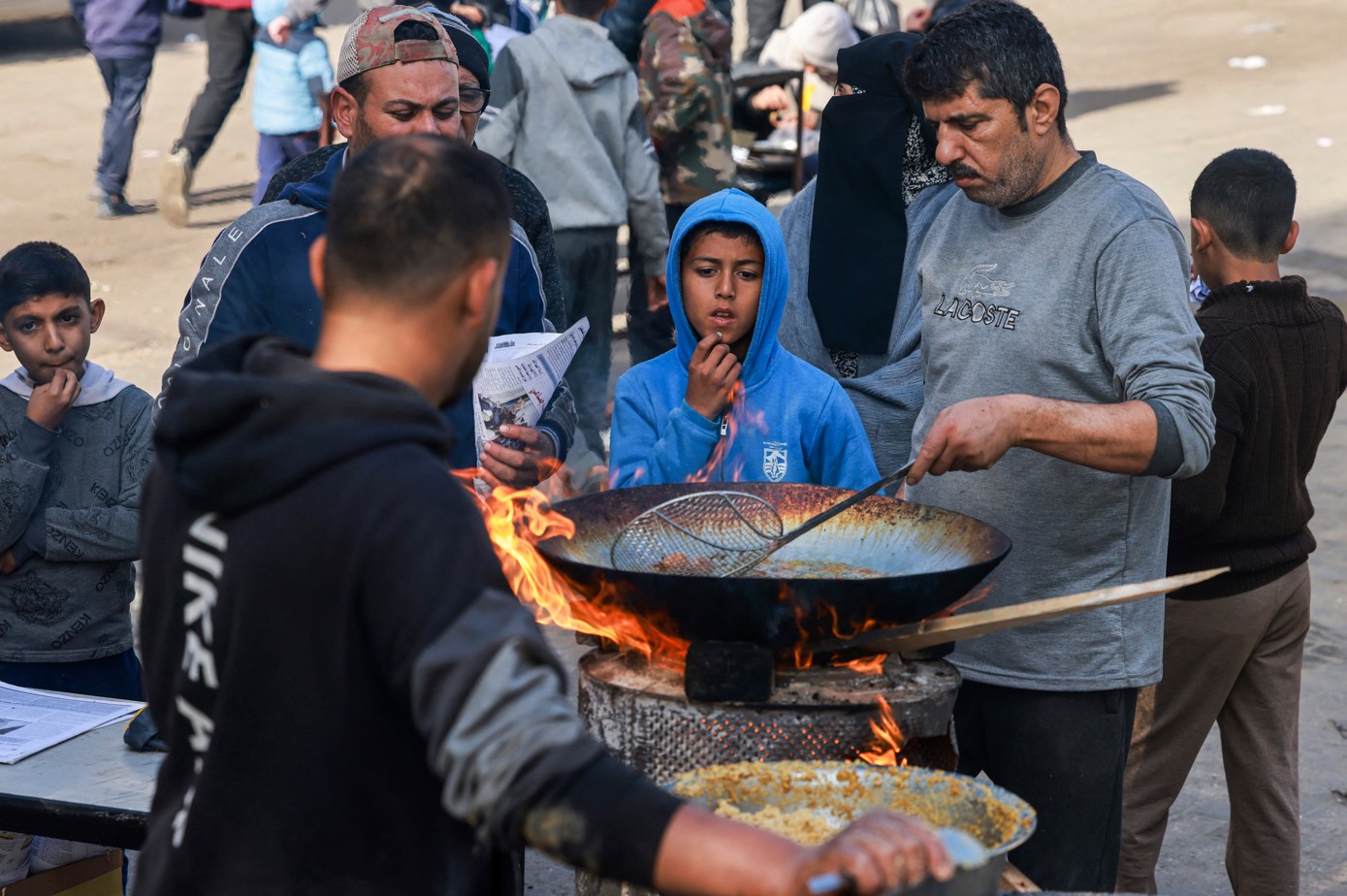UN calls for urgent steps to prevent famine in Gaza

As the risk of famine grows, and more people are exposed to deadly disease outbreaks, a fundamental step change in the flow of humanitarian aid into Gaza is urgently needed, UN humanitarian agencies say.
Three major United Nations humanitarian agencies - the World Food Programme (WFP), Unicef and the World Health Organization (WHO) - have warned that unless urgent steps are taken to deliver more aid faster and safer, thousands of people in Gaza will be at the risk of starving to death.
In a joint statement issued in Rome, Geneva and New York on Monday, the heads of the three agencies said that as the risk of famine grows, and more people are exposed to deadly disease outbreaks, a fundamental step change in the flow of humanitarian aid into Gaza is urgently needed.
More To Read
- 19th Goodness Ship departs Turkey carrying 1,300 tons of humanitarian aid to Gaza
- 139 nations back UN General Assembly call for Israel to respect UN sites, international law
- Deep concerns for Palestinians amid intense Israeli raids in occupied West Bank
- Maternal and newborn health in crisis as millions born in conflict zones, Save the Children warns
- Gaza faces humanitarian disaster with thousands trapped in flooded camps
- Ghana expels three Israelis over Ben Gurion Airport detentions
They called for urgent steps to get enough supplies into and across Gaza, such as “the opening of new entry routes; more trucks being allowed through border checks each day; fewer restrictions on the movement of humanitarian workers; and guarantees of safety for people accessing and distributing aid".
The UN agencies stated that “humanitarian action is seriously limited by the closure of all but two border crossings in the south and the multi-layered vetting process for trucks coming into Gaza".
In addition, they said “efforts to set up service points for people in need are hampered by bombardments and constantly shifting battle fronts, which endanger the lives of ordinary Gazans and the UN and other humanitarian personnel striving to help them”.
“People in Gaza risk dying of hunger just miles from trucks filled with food,” said WFP Executive Director Cindy McCain. “Every hour lost puts countless lives at risk. We can keep famine at bay but only if we can deliver sufficient supplies and have safe access to everyone in need, wherever they are.”

The latest Integrated Food Security and Nutrition Phase Classification (IPC) report confirmed that the entire population of Gaza – roughly 2.2 million people - is in crisis or worse levels of acute food insecurity. According to the United Nations, virtually all Palestinians in Gaza are skipping meals every day while many adults go hungry so children can eat, and the report warned of famine, if current conditions persist.
The conflict has also damaged or destroyed essential water, sanitation and health infrastructure and services, and limited capacity to treat severe malnutrition and infectious disease outbreaks. With Gaza’s 335,000 children under five especially vulnerable, Unicef projects that, in the next few weeks, child wasting, the most life-threatening form of malnutrition in children, could increase from pre-crisis conditions by nearly 30 per cent, affecting up to 10,000 children.
“Children at high risk of dying from malnutrition and disease desperately need medical treatment, clean water and sanitation services, but the conditions on the ground do not allow us to safely reach children and families in need,” said Unicef Executive Director Catherine Russell. “Some of the material we desperately need to repair and increase water supply remains restricted from entering Gaza. The lives of children and their families are hanging in the balance. Every minute counts.”
Unicef has been warning since last November that children in southern Gaza are accessing only 1.5 to 2 litres of water per day, well below the recommended requirements for survival.
WHO Director-General Dr Tedros Adhanom Ghebreyesus said, "People in Gaza are suffering from a lack of food, water, medicines and adequate healthcare. Famine will make an already terrible situation catastrophic because sick people are more likely to succumb to starvation and starving people are more vulnerable to disease."
He added, “We need unimpeded, safe access to deliver aid and a humanitarian ceasefire to prevent further death and suffering.”
Israeli authorisation to use a working port close to the Gaza Strip and border crossing points into the north is critically needed by aid agencies. Access to Ashdod port, roughly 40 km to the north, would enable significantly larger quantities of aid to be shipped in and then trucked directly to the badly affected northern regions of Gaza, which few convoys have managed to reach.
“The flow of aid has been a trickle in comparison to a sea of humanitarian needs,” said Phillipe Lazzarini, Commissioner General for the UN Palestine Refugee Agency (UNRWA). “Humanitarian aid will not be enough to reverse the worsening hunger among the population. Commercial supplies are a must to allow the markets and private sector to re-open and provide an alternative to food accessibility.”
The three agency heads emphasise the urgent need to lift the barriers and restrictions on aid delivery to and within Gaza, and for commercial traffic to resume. They reiterate the call for a humanitarian ceasefire to enable this vitally important roll-out of a massive, multi-agency humanitarian operation.
Source: The Eastleigh Voice and UN Agencies
Top Stories Today














































